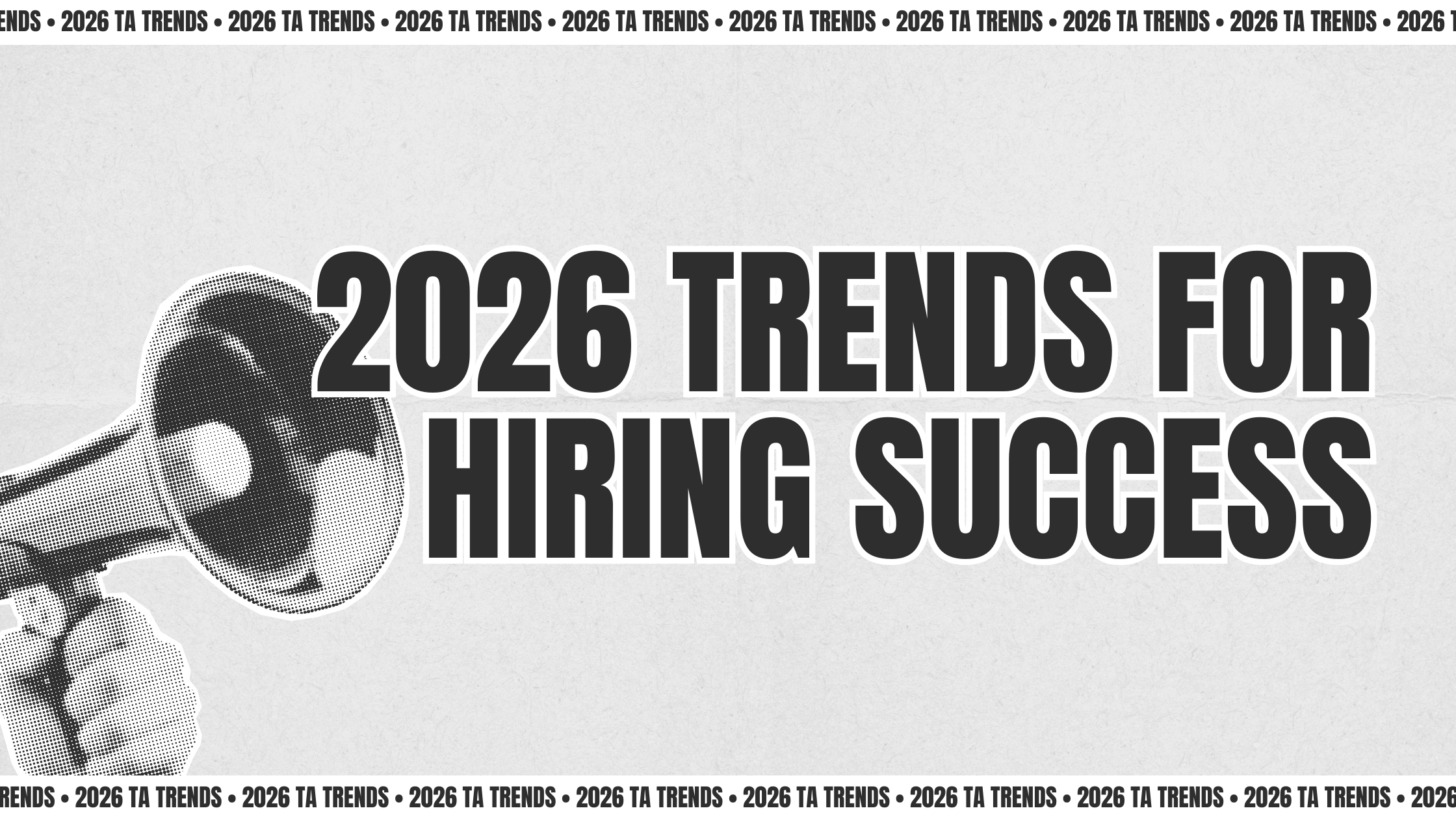
Finding candidates you want to talk to is tough. Especially in today’s job market. To make matters worse, “ghosting” is becoming increasingly common, causing companies and their hiring teams more challenges during the interview process than ever before. Why is this such a problem? And what can you do to reduce the percentage of candidates who just don’t show up for their scheduled interview?
What is Candidate Ghosting?
You might be more familiar with the term ghosting as it applies to the dating world. However it’s an unfortunate trend that has infiltrated the world of recruiting too.
When a candidate simply stops all communication with the recruiting team, that’s considered ghosting. This can include more than skipping out on a scheduled job interview. Recruiters also report issues with getting people to show up for signing paperwork after a verbal offer has been made, and even not showing up for the first day at work. Rather than sharing why they’re no longer interested in the role in which they applied, these candidates simply disappear without a word of explanation.
Of course, you’re probably asking yourself, “Why did the candidate bother to apply in the first place if they didn’t want to have a conversation?” That’s a great question — and one that needs answered and remedied to make sure it is not the norm.
Think about all the time and effort recruiting takes. From sourcing and screening to interviews and offers, the entire process takes a lot of legwork. After all that, the last thing you want is to lose a candidate at the last moment. Not only are you without a potentially qualified employee, your cost-per hire and time-to-fill really goes up. The result? A lot of frustration, disappointment, and confusion.
Related Read: 4 Reasons Post & Pray Recruiting Won't Work in 2025
To combat this growing problem and reduce the chances of your hiring team having to constantly scramble when you’re ghosted, you can take steps to be proactive so you can lower the likelihood it will happen to you. Here are 5 tips to help stop candidate ghosting.
1. Be Specific and Transparent
Ghosting often happens because the company or position wasn’t what the candidate expected. Perhaps the list of duties was unclear. Or, maybe your company’s values didn’t align with their own. Whatever the reason, something apparently turned them off.
Your goal as an employer is to make sure that candidates have a pretty firm understanding of the position and company culture from the very beginning of the application process. To do this, aim to write job descriptions that are straightforward and inclusive — ones that clearly outline the responsibilities and goals expected of them. If certain requirements aren’t absolutely essential to the role, there’s no need to list them since doing so can shrink the job pool of diverse talent to choose from.
When it comes to company values and culture, it’s important that it’s obvious they align with one another. Make sure your job postings, employer branding, and social media channels define what you’re about and what sets you apart from other companies in regards to innovation and vision. The goal is to make it easy for potential employees to see what they can gain from working your company over someone else’s.
2. Stay in Touch With Candidates
Sadly, candidates aren’t the only ones who resort to ghosting — employers do it, too. If you aren’t taking time to reach out and follow up with potential candidates, and they’re left wondering about their application status, you can’t fault them for losing interest. After all, you’ve made it pretty clear you’re not interested in them, even if it is unintentional.
Follow-up is key. It’s imperative that you are constantly and consistently in front of your candidates, ensuring that they know they’re still relevant. Notify them when you’ve received their application and keep them regularly informed about its status. Don’t forget to reach out again once an offer letter has been signed. The bottom line is that lack of communication on your part could trigger candidate ghosting that could have possibly been prevented with just a few minutes of your time.
3. Keep Candidates Engaged
Candidate engagement — continually communicating with your candidate pool — is incredibly important. Not only is it a good way for you to get to know the candidate better, it’s beneficial for the candidate in that they can get a clearer picture of your company’s environment and culture.
Engaging candidates can be done in various ways, including email, phone calls, text, or face-to-face. While phone calls and face-to-face certainly give a more personal touch, a candidate can still remain engaged through the other channels of communication as long as the outreach seems like it was specifically written for them.
Keep in mind that candidate engagement is something that should be maintained throughout the entire hiring process. Open dialogue from the start allows you to build a foundation that will hopefully lead to them giving serious consideration to an offer of employment. If a job offer is made, it’s equally important that you continue to follow-up with them regularly so they start their new role on a positive note.
Simply put, the more a candidate is included in the hiring process, the less likely you’ll get ghosted by them. If you don’t persistently engage with candidates through the entire recruiting process, there’s a good chance they might lose interest and start searching for their next career move.
4. Streamline Your Hiring Process
Obviously, it takes time to recruit and hire the right talent for your company. Too much time, however, can be problematic. Is your applicant tracking system overly complicated? If it takes too long for candidates to express interest in the role, then they’ll lose interest in the role. How about your interview process? Long wait times between interviews can leave candidates feeling frustrated to the point where it’s easier to ghost you for a company that moves faster. Review your hiring process and eliminate any time-wasting steps so it can be as efficient as possible.
5. Get Candidate Feedback
Criticism can hurt, but if you have a pattern of being ghosted, it might be in your best interest to suck it up and take it. Candidate feedback might feel uncomfortable, but it’s one of the best ways to see your company and its hiring process through their eyes. Creating regular surveys is a great way to gain insight on what it’s like to be a candidate looking to work for your company. Be sure to do this regularly, keep an open mind, and make the changes needed to turn things around.
RPO Can Help Minimize Candidate Ghosting
Sometimes, you’ll just never know what happened on their end. In fact, it might not have had anything to do with your company or your process at all. Still, ghosting is unfortunate.
Although it isn’t something that can be completely avoided, a good start would be aiming for less than 20% of interview no-shows. Start with the tips we’ve shared here, but if you’re not seeing the percentage go down pretty quickly, it may be time to take a step back and look at your recruiting approach. Are you getting the right candidates? If you are, then ghosting isn’t quite as common.
Recruitment process outsourcing companies can give you an analysis of your candidate sourcing strategies and tactics and then make recommendations for how to improve the process. RPO companies specialize in optimizing the recruitment process, offering a diversified pool of talent, and generating candidate experiences that will make ghosting less of an issue. Your internal team is still a critical part of the recruiting process. But adding this resource will help you get your time-to-fill and cost-per-hire into a more reasonable range.
Related Read: Recruitment Process Outsourcing vs In-House Recruiting: Can You Use Both?
RCI offers RPO options for short-term or long-term recruiting needs. Talk to our expert team to see how we can complement your team’s recruiting efforts and get you to your goals quicker.





